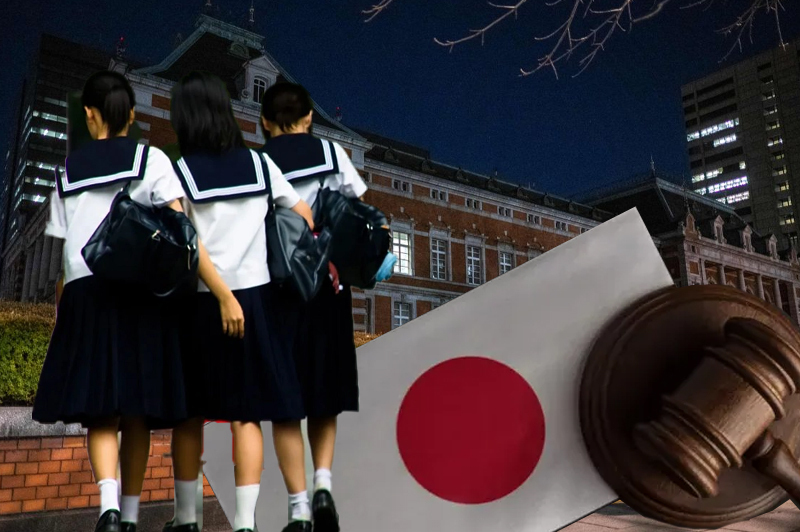
japan weighs finally lifting age of consent from 13
Japan has long been notorious for its low age of consent — 13 years old — which is among the lowest in the world. While Japan’s criminal code currently sets the age of consent at 13, the government is now taking steps to address this issue by considering raising it to 16. This blog post will discuss why Japan needs to raise its legal age of consent and how this will impact Japanese society. We’ll also explore other countries who have implemented similar laws and what challenges they faced along the way. So, if you’re looking to learn more about Japan’s current law and how it may be changed, read on!
The current age of consent in Japan
The current age of consent in Japan is 13. This is one of the lowest ages of consent in the world, and it has been a point of contention for many years. There have been calls to raise the age of consent to 16, but so far these have been unsuccessful.
There are a number of reasons why the age of consent in Japan is so low. One theory is that it stems from the country’s history as a feudal society, where young girls were often married off at a young age. Another possibility is that it was deliberately set low to discourage premarital sex, which was seen as morally objectionable. Whatever the reason, the age of consent in Japan has remained unchanged for many years.
This has led to some problems, as it effectively means that sexual relationships between adults and minors are not considered illegal unless they involve coercion or force. This has resulted in a number of high-profile cases involving adults who have had sexual relationships with minors, leading to public outcry and calls for reform.
So far, however, the age of consent in Japan has remained at 13, despite all the controversy. It remains to be seen whether this will change in the future, but for now, it seems unlikely that there will be any major changes to the law any time soon.
Keep Reading
The debate over whether to raise the age of consent
There is currently a debate in Japan over whether to raise the age of consent. The age of consent in Japan is 13, which is one of the lowest in the world. This has led to concerns that children are being sexually exploited. There have been calls to raise the age of consent to 16 or 18.
The argument for raising the age of consent is that it would help protect children from being sexually exploited. Currently, there are no laws against adults having sex with children under 13, as long as there is no force or coercion involved. This means that adults can legally have sex with children as young as 12 years old.
Opponents of raising the age of consent argue that it would criminalize teenage sexuality. They say that many teenagers have sex before they turn 18, and that prosecuting them would be unfair. They also argue that raising the age of consent could lead to more teenage pregnancies, as teenagers may be afraid to seek birth control if they think they could be prosecuted for having sex.
Pros and cons of raising the age of consent
There are pros and cons to raising the age of consent in Japan. On the plus side, it would bring the country in line with international norms. It would also help protect young people from being taken advantage of by adults. On the downside, some people argue that it could lead to more teenage pregnancies, and that it could be difficult to enforce.
Other countries’ age of consent laws
It is worth noting that the age of consent in Japan is not as clear cut as it is in other countries. The law stipulates that a person must be at least 18 years old to engage in sexual activity, but there is a loophole that allows people aged 16 and 17 to do so if they have parental permission. This means that, technically speaking, the age of consent in Japan is lower than in many other countries.
This has been a point of contention for some time, and there has been recent pressure to raise the age of consent to 18 without exception. One argument for this change is that it would bring Japan in line with international standards. Another argument is that it would help protect young people from being taken advantage of by older partners.
The Japanese government is currently considering raising the age of consent to 18, but no decision has been made yet. It remains to be seen whether or not this change will be made, but it would certainly be a step in the right direction.
What would a change mean for Japanese society?
As it stands, the age of consent in Japan is 13 years old. This means that, legally, anyone over the age of 13 can consent to sexual activity. However, there is a major push by activists and lawmakers to raise the age of consent to 18 years old. There are a few reasons for this proposed change.
One reason is that the current age of consent is significantly lower than in other developed countries. For example, in the United States, the age of consent is 18 years old. In Canada, it is 16 years old. Having a lower age of consent sends a message that Japan is not as serious about protecting its children from sexual predators as other countries are.
Another reason for raising the age of consent is that it would help to combat child pornography and sex trafficking in Japan. Currently, because the age of consent is so low, there is a thriving market for child pornography and many young girls are forced into prostitution. If the age of consent were raised to 18 years old, it would be much more difficult for child pornographers and sex traffickers to operate in Japan.
Finally, raising the age of consent would help protect young people from making decisions that they may later regret. Many teens engage in sexual activity before they are emotionally or mentally ready for it. This can lead to problems such as STDs, teenage pregnancy, and emotional trauma. If the age of consent were raised to 18 years old, it would give teens more time to mature before making
Japan is finally weighing the possibility of raising the age of consent from 13 to 16, and it is a welcome move towards protecting the rights of children. This long overdue step would give adolescents more autonomy in making their own decisions regarding sex, while also ensuring they will not be exploited or taken advantage of. Ultimately, such a measure would help create a safer environment for young people in Japan and might even ultimately open up conversations about similar issues around the globe.
Read More:- Google India Fired 453 Employees; CEO Sundar Pichai Wrote A Letter To The Sacked Employees









